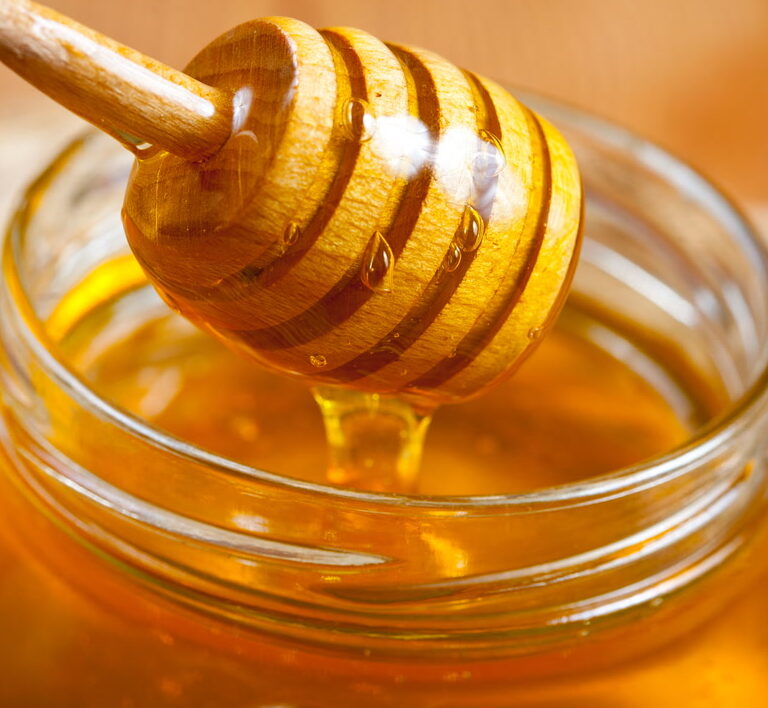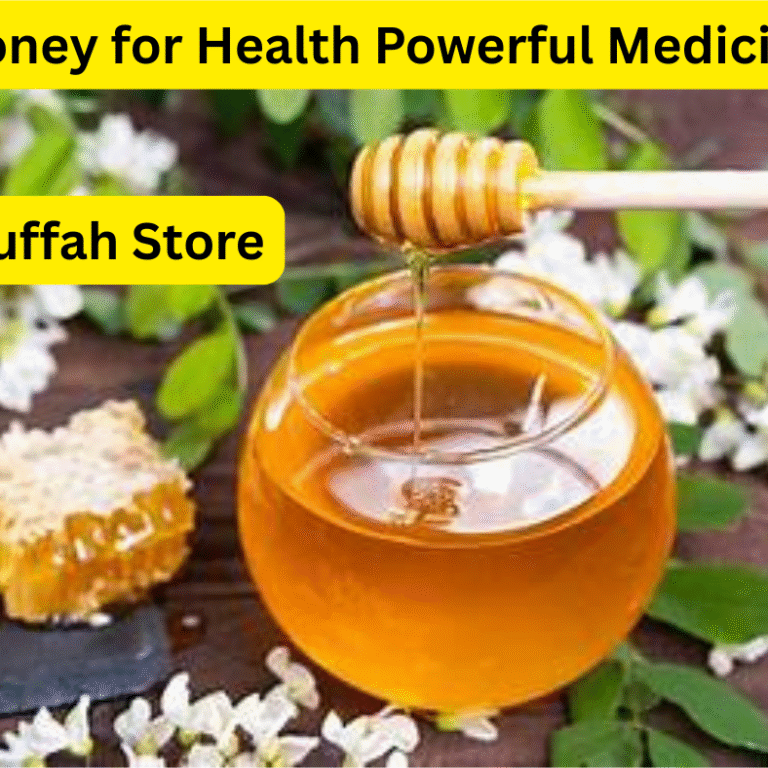Table of Contents
Honey for Cough
Introduction: A Time-Tested Natural Remedy
Cough is one of the most common symptoms people experience during seasonal changes, flu outbreaks, or respiratory infections. While pharmacies are filled with over-the-counter syrups and tablets, many families still turn to a simple, natural, and affordable remedy — honey. For centuries, honey has been used in traditional medicine to soothe sore throats, calm persistent coughs, and support overall respiratory health. Its effectiveness is not just folklore; modern science now supports what our ancestors knew all along.
Why Honey is a Trusted Remedy for Cough
Honey is more than just a sweetener. It’s a powerful natural remedy with a unique combination of properties that make it ideal for treating coughs. Its thick, viscous texture coats the throat, creating a soothing barrier that reduces irritation and suppresses the urge to cough. This is especially helpful at night when coughing can disrupt sleep. A single teaspoon of honey — taken directly or mixed into warm tea — can provide noticeable relief.
Mothers have long believed in the power of honey to ease their children’s coughs, especially before bedtime. This belief is now backed by clinical research, making honey a reliable and safe choice for both adults and children over the age of one.
Honey benefits in unani medicine
Honey vs. Cough Syrups: A Natural Alternative
One of the most compelling reasons to use honey for cough relief is its excellent safety profile and cost-effectiveness. Unlike many synthetic cough syrups that may contain alcohol, artificial flavors, or sedatives, honey is a natural product with no harmful side effects when used appropriately. It is also significantly cheaper than most over-the-counter medications, making it accessible to families from all walks of life.
In fact, studies have shown that honey can be just as effective — if not more — than common cough medications. For example, a 2007 study published in the found that buckwheat honey was more effective than no treatment and just as effective as dextromethorphan (a common cough suppressant) in reducing nighttime coughing and improving sleep quality in children.
🔗 Read the study
How Honey Works to Relieve Cough
Honey’s effectiveness in treating cough is due to its unique combination of antioxidant, anti-inflammatory, and antibacterial properties. Here’s how it works:
- Antioxidants in honey help reduce inflammation in the throat, which is often the root cause of irritation and coughing.
- Antibacterial compounds in honey may help prevent or fight infections that trigger coughing.
- Honey may reduce mucus production, making it easier to breathe and speak.
- Its thick consistency coats the throat, soothing the mucous membranes and reducing the cough reflex.
These mechanisms make honey a multi-functional remedy that not only soothes symptoms but also supports the body’s natural healing process.
Best Types of Honey for Cough Relief
Not all honey is created equal. For maximum health benefits, it’s important to choose the right type of honey. Look for labels that say:
These types of honey retain more of their natural enzymes, antioxidants, and nutrients because they are not subjected to high heat or extensive processing. Buckwheat honey and wildflower honey have been specifically studied for their effectiveness in treating coughs and are excellent choices for natural healing.
Scientific Research and Traditional Remedies That Prove Honey Works
Scientific Research:
Modern science has increasingly validated the traditional use of honey as a remedy for cough and sore throat. Numerous studies have demonstrated honey’s effectiveness in reducing cough frequency, improving sleep, and soothing throat irritation — especially in children. One of the most cited studies, published in 2007, compared buckwheat honey, honey-flavored dextromethorphan, and no treatment. The results showed that honey was not only superior to no treatment but also equally effective as the over-the-counter cough suppressant.
🔗 Read the study
Another study conducted in Italy found that giving children three consecutive doses of wildflower honey mixed with milk significantly reduced symptoms of nonspecific acute cough. This supports the idea that honey not only soothes the throat but also helps reduce mucus production and inflammation.
A 2002 study by the University of Illinois revealed that honey could reduce mucus secretion and increase the release of cytokines, which are proteins that help regulate the immune response. This means honey not only treats symptoms but may also support the body’s natural healing process.

WHO and Global Health Recommendations
The World Health Organization (WHO) has recommended honey as a treatment for cough and cold in children since 2001. This is especially important in regions where access to healthcare is limited or where overuse of antibiotics is a concern. Honey offers a safe, affordable, and effective alternative that can be used at home without a prescription.
🔗 WHO Reference
Traditional Remedies Using Honey for Cough
In addition to scientific studies, honey has been a cornerstone of traditional medicine across cultures. In South Asian households, honey is often combined with lemon, ginger, and warm water to create a powerful home remedy for cough and sore throat. These ingredients work synergistically — honey soothes, lemon provides vitamin C, and ginger acts as an anti-inflammatory agent.
Here are a few popular remedies:
- Honey and Warm Water: Mix 1–2 tablespoons of honey in a glass of lukewarm water. Drink this 2–3 times a day to soothe the throat and reduce coughing.
- Honey, Lemon, and Ginger Tea: Add fresh ginger slices and lemon juice to hot water, then stir in honey. This tea is excellent for clearing mucus and calming inflammation.
- Herbal Tea with Honey: Add honey to chamomile or peppermint tea for a relaxing, throat-soothing drink.
These remedies are not only effective but also easy to prepare and cost-friendly — making them ideal for daily use.
Safe Usage and Home Applications
Safe Usage of Honey for Cough Relief
Honey is widely regarded as one of the safest natural remedies for cough, especially when used correctly. It is suitable for adults and children over the age of one. However, it should never be given to infants due to the risk of infant botulism — a rare but serious illness caused by bacterial spores that may be present in raw honey.
For children aged 1 and above, a dose of 0.5 to 1 teaspoon (2.5 to 5 mL) of honey can be given to relieve cough. Adults can take 1 to 2 teaspoons as needed, especially before bedtime to reduce nighttime coughing and improve sleep quality. Honey can be taken directly or mixed into warm beverages like tea or milk.
How to Use Honey at Home for Cough
Honey is incredibly versatile and can be used in a variety of home remedies. Here are some effective and easy-to-make options:
1. Honey and Warm Water
Mix 1–2 tablespoons of honey in a glass of lukewarm water. Drink this mixture 2–3 times a day to soothe the throat and reduce coughing. This is one of the simplest and most effective remedies.
2. Honey, Lemon, and Ginger Tea
Boil a few slices of fresh ginger in water, then add lemon juice and honey. This combination not only soothes the throat but also boosts immunity and helps clear mucus.
3. Honey with Herbal Tea
Add honey to herbal teas like chamomile, peppermint, or green tea. These teas have calming properties that complement honey’s soothing effects.
4. Honey and Milk
In some cultures, warm milk with honey is used to calm nighttime coughs and promote restful sleep. This is especially helpful for children.
Frequently Asked Questions (FAQs)
Q1: Is honey really effective for cough?
Yes. Multiple studies have shown that honey is as effective as or even better than some over-the-counter cough medicines. It soothes the throat, reduces inflammation, and helps suppress the cough reflex.
Q2: How often can I take honey for cough?
You can take honey 2–3 times a day. It is especially effective when taken before bedtime to reduce nighttime coughing.
Q3: What type of honey is best for cough?
Raw, Sidr Honey and pure Big Bee honey is best. Buckwheat and wildflower honey have been shown in studies to be particularly effective for cough relief.
Q4: Can honey be used with other ingredients?
Absolutely. Honey pairs well with lemon, ginger, turmeric, and herbal teas. These combinations enhance its healing properties and provide additional relief.
Final Thoughts
Honey is more than just a sweetener — it’s a powerful, natural remedy that has stood the test of time. Backed by both traditional wisdom and modern science, honey offers a safe, affordable, and effective solution for cough relief. Whether you’re treating a child’s cold or looking for a natural alternative to synthetic medications, honey is a trusted ally in your wellness routine.
🛒 Looking for high-quality, pure honey?
Visit Suffah Store to explore our range of natural honey products, trusted by families across Pakistan for their purity, taste, and health benefits.






